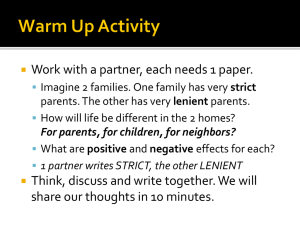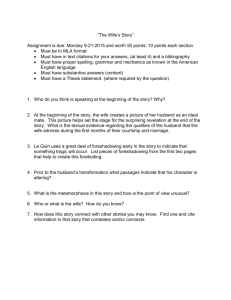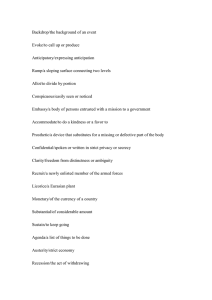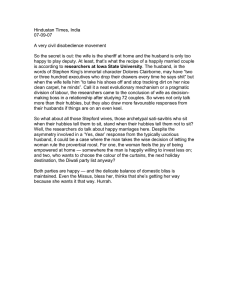How To Understand Relationship Dynamics
advertisement
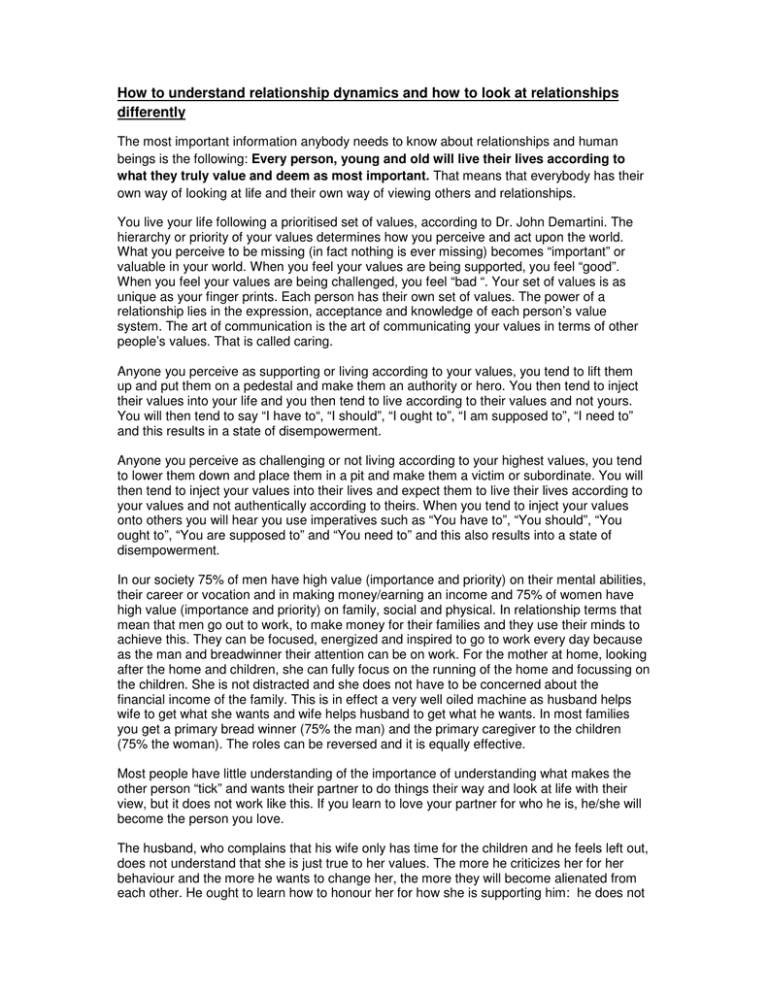
How to understand relationship dynamics and how to look at relationships differently The most important information anybody needs to know about relationships and human beings is the following: Every person, young and old will live their lives according to what they truly value and deem as most important. That means that everybody has their own way of looking at life and their own way of viewing others and relationships. You live your life following a prioritised set of values, according to Dr. John Demartini. The hierarchy or priority of your values determines how you perceive and act upon the world. What you perceive to be missing (in fact nothing is ever missing) becomes “important” or valuable in your world. When you feel your values are being supported, you feel “good”. When you feel your values are being challenged, you feel “bad “. Your set of values is as unique as your finger prints. Each person has their own set of values. The power of a relationship lies in the expression, acceptance and knowledge of each person’s value system. The art of communication is the art of communicating your values in terms of other people’s values. That is called caring. Anyone you perceive as supporting or living according to your values, you tend to lift them up and put them on a pedestal and make them an authority or hero. You then tend to inject their values into your life and you then tend to live according to their values and not yours. You will then tend to say “I have to“, “I should”, “I ought to”, “I am supposed to”, “I need to” and this results in a state of disempowerment. Anyone you perceive as challenging or not living according to your highest values, you tend to lower them down and place them in a pit and make them a victim or subordinate. You will then tend to inject your values into their lives and expect them to live their lives according to your values and not authentically according to theirs. When you tend to inject your values onto others you will hear you use imperatives such as “You have to”, “You should”, “You ought to”, “You are supposed to” and “You need to” and this also results into a state of disempowerment. In our society 75% of men have high value (importance and priority) on their mental abilities, their career or vocation and in making money/earning an income and 75% of women have high value (importance and priority) on family, social and physical. In relationship terms that mean that men go out to work, to make money for their families and they use their minds to achieve this. They can be focused, energized and inspired to go to work every day because as the man and breadwinner their attention can be on work. For the mother at home, looking after the home and children, she can fully focus on the running of the home and focussing on the children. She is not distracted and she does not have to be concerned about the financial income of the family. This is in effect a very well oiled machine as husband helps wife to get what she wants and wife helps husband to get what he wants. In most families you get a primary bread winner (75% the man) and the primary caregiver to the children (75% the woman). The roles can be reversed and it is equally effective. Most people have little understanding of the importance of understanding what makes the other person “tick” and wants their partner to do things their way and look at life with their view, but it does not work like this. If you learn to love your partner for who he is, he/she will become the person you love. The husband, who complains that his wife only has time for the children and he feels left out, does not understand that she is just true to her values. The more he criticizes her for her behaviour and the more he wants to change her, the more they will become alienated from each other. He ought to learn how to honour her for how she is supporting him: he does not have to worry about the care giving of the children or the running of the house and therefore he can focus and concentrate on his job. She helps him to get what he wants. If he shows gratitude to her and he acknowledges her for the important role she plays in his life, she will come closer to him. It is possible that she feels more acceptance and acknowledgement from her children and less from her husband, because he does not value and accept her for who she is and how she supports him. If he wants his wife “back” he must learn to love her for who she is and she will want to be “back” with her husband who loves her, acknowledges her and cares for her. We all just want to be loved for who we are. We pull away from the person who wants to change us and we pull closer to the person who accepts us for who we are. Many married partners complain about the lack of time for each other because the children come first. The secret of changing this is to become nice to each other again. If your partner is nice to be with you want to spend time with each other, but when your partner is critical, grumpy and discontent, you do not want to spend time with each other. As everyone has their own value system and partners attract to them their opposite (opposite attract), it is common in relationships to become distant and alienated from each other. Every person wants to spend time with another person who makes them feel good about themselves as well as accepted. Everybody wants to be loved and wants to belong. Acknowledge what your partner likes and values and meet each other halfway by helping each other to get what they want. For instance if your husband likes to go to bed late and you like to go to bed early, stay up later to be with your husband after the children go to bed or go earlier to bed with your wife to be together when the children sleep. Marries couples with young children must be clever and wise in using whatever time is available to them when the kids sleep. Help each other to feel valued and special and you will want to spend more time with each other. Married parents must also keep in mind that the principle of opposites attract also apply in parenting and usually a strict one is married to a more lenient one. Parents also take turns in how they are with the children and when Dad is strict with the children, Mom usually is the softer one in that situation and when Mom is the one who reprimands, Dad supports the children. Children need both kinds of parents to learn to cope with life. If you feel your partner is too strict and you consider yourself to be the lenient one, you are actually lopsided in your perception. Ask yourself where it is possible that the children perceive you to be strict and where your children perceive your partner to be lenient. All parents in fact are strict in the areas that are of priority and importance to them and lenient in the areas that are unimportant and of low priority. For instance if a tidy house is of high value and importance to you, you will be strict with the tidiness of the house. If finishing all the food on the plate is of low importance to you, you will be lenient when the children do not finish their food. But if the tidiness of the house is unimportant to you, you will be lenient on the children when they mess the house and if finishing all the food on the plate is of high importance to you, you will be strict on the children to finish their food. Be careful of judging the other parent, because all parents are strict and lenient, just in their own forms. In essence we are all the same. We all want to be loved, we all want to be accepted for the way we are, and we all want to be valued. A healthy strong relationship is one of acceptance, acknowledgement and loving the other person just the way they are. Ghandi believed that we should be the change we want to see! Ilze van der Merwe, Psychologist and Director of Bella Vida Centre www.bellavidacentre.co.za
